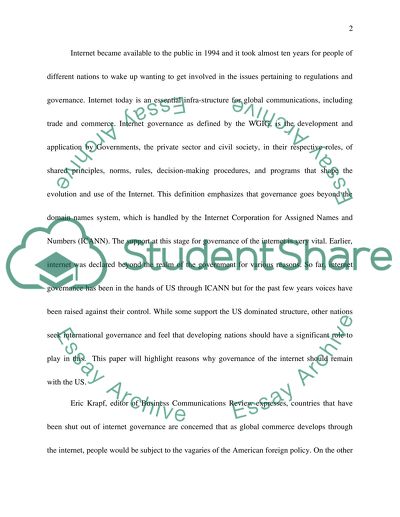Cite this document
(“Internet Governance Essay Example | Topics and Well Written Essays - 2500 words”, n.d.)
Retrieved from https://studentshare.org/miscellaneous/1536456-internet-governance
Retrieved from https://studentshare.org/miscellaneous/1536456-internet-governance
(Internet Governance Essay Example | Topics and Well Written Essays - 2500 Words)
https://studentshare.org/miscellaneous/1536456-internet-governance.
https://studentshare.org/miscellaneous/1536456-internet-governance.
“Internet Governance Essay Example | Topics and Well Written Essays - 2500 Words”, n.d. https://studentshare.org/miscellaneous/1536456-internet-governance.


